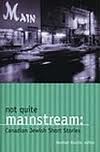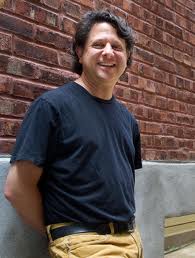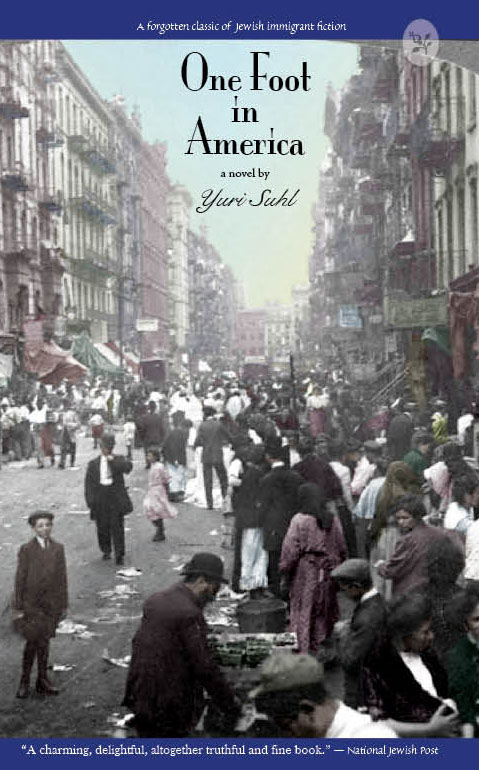 A new collection of 17 short stories by Canadian Jewish writers, published by the Red Deer Press of Calgary, demonstrates both the diversity and literary acumen that we have come to expect from our writing community, pasat and present.
A new collection of 17 short stories by Canadian Jewish writers, published by the Red Deer Press of Calgary, demonstrates both the diversity and literary acumen that we have come to expect from our writing community, pasat and present.
Not Quite Mainstream: Canadian Jewish Short Stories is edited by Norman Ravvin, the gifted short-story writer who is presently chair of Canadian Jewish Studies at Concordia University in Montreal.
Ravvin has assembled a rich historical cross-section that offers many surprises and delights.
Since it’s both desirable and compulsory to include our most celebrated scribe in such a project, the editor has made the obvious choice in presenting “The Street,” Mordecai Richler’s wry and ribald comic sketch of life in Montreal’s Jewish ghetto. (For whatever reason, perhaps because it was too ribald or too ripe with shtick, “The Street” was omitted from Canadian Jewish Short Stories, the notable collection that Miriam Waddington edited for Oxford University Press a dozen years ago.)
 The title page of Not Quite Mainstream lists several stories by familiar authors that I had long been meaning to read: Norman Levine’s “Thin Ice,” for example, a comic treat that bears comparison to I. B. Singer’s “The Briefcase.” Another was Matt Cohen’s “Lives of the Mind Slaves,” which is hip, poetic, agile and — surprise, surprise — Jewish to its very core.
The title page of Not Quite Mainstream lists several stories by familiar authors that I had long been meaning to read: Norman Levine’s “Thin Ice,” for example, a comic treat that bears comparison to I. B. Singer’s “The Briefcase.” Another was Matt Cohen’s “Lives of the Mind Slaves,” which is hip, poetic, agile and — surprise, surprise — Jewish to its very core.
Irving Layton’s “Piety” and Cary Fagan’s “Nora By the Sea” are also welcome contributions by well-established writers. (A.M. Klein was omitted because his stories fall “below the quality of his other work,” the editor explains; other no-shows include Leonard Cohen and Adele Wiseman, neither of whom focused on the short story.)
Commendably, Not Quite Mainstream seemingly rescues some gems from obscurity, for instance “That First Morning,” translated from the original Yiddish of Yaacov Zipper. This highly deserving piece opens the collection and presents a fresh tableau of a European immigrant’s first moments in Canada. I read it as if discovering pages from a diary that might have belonged to my own grandfather.
Numerous pieces by Chava Rosenfarb, Rochl Korn, Elaine Kalman Naves and others reflect the inescapable monolith of the Holocaust. Some are set entirely in Europe and the past. Those set at least partly in Canada are obviously better at fulfilling our expectation that they provide some insight into our experience in Canada.
Stories involving the eternal theme of persecution, although not Holocaust-related, include Tom Wayman’s “The Murder”, a riveting piece about an old-world murder with new-world consequences; and Robyn Sarah’s “A Minor Incident,” in which a girl’s rising awareness of the possibility of anti-semitism seems to precipitate her fall from childhood innocence.
Jews, these stories show, cannot help but be Jewish. That is why, despite record levels of cultural assimilation, we remain Not Quite Mainstream.
Ravvin observes, as Waddington did before him, that short stories by Canadian Jews defy categorization. He suggests they are best characterized by “the variety, the unpredictability, and the ongoing transformation” inherent in them.
This collection demonstrates the truth of this: it is a garden strewn with diverse flowering plants, including many exotics.
Consider “Fuller Brush” by Kenneth Sherman, which leaves us wanting more stories from this prolific poet. Or “August,” by Claire Rothman — a unique and sensational tale that made me wonder why I had never heard of either Rothman or this story before now.
Ravvin’s contribution, “A Story with Sex, Skyscrapers, and Standard Yiddish,” is equally a tour-de-force as it humourously presents the writer’s existential landscape — a man, a plan, a mirror, a window, a girl, an apartment, a typewriter — in language that easily dazzles.
Not Quite Mainstream deserves a wide readership. It is available in softcover in bookstores for $18.95. ♦
© 2002








